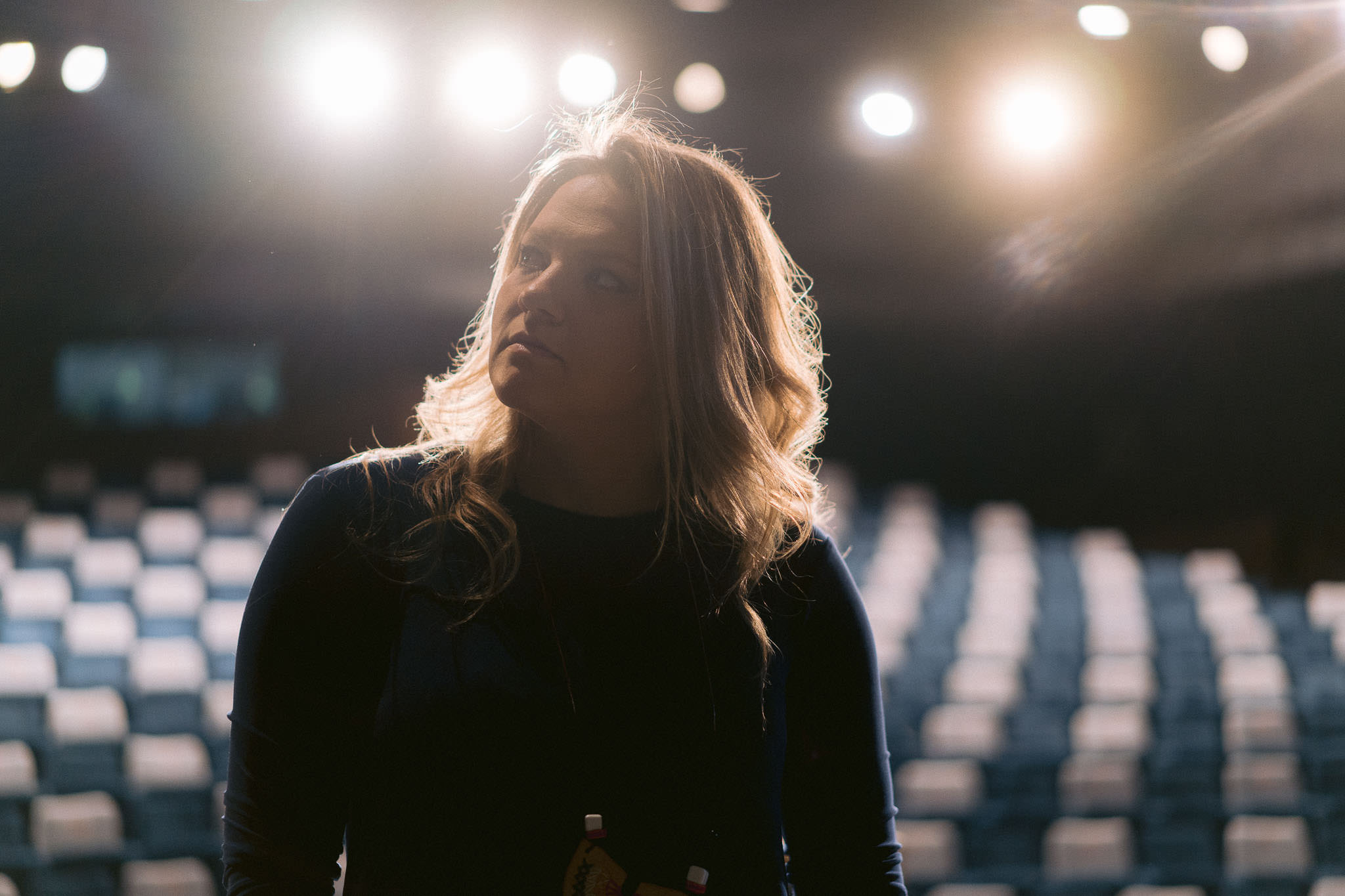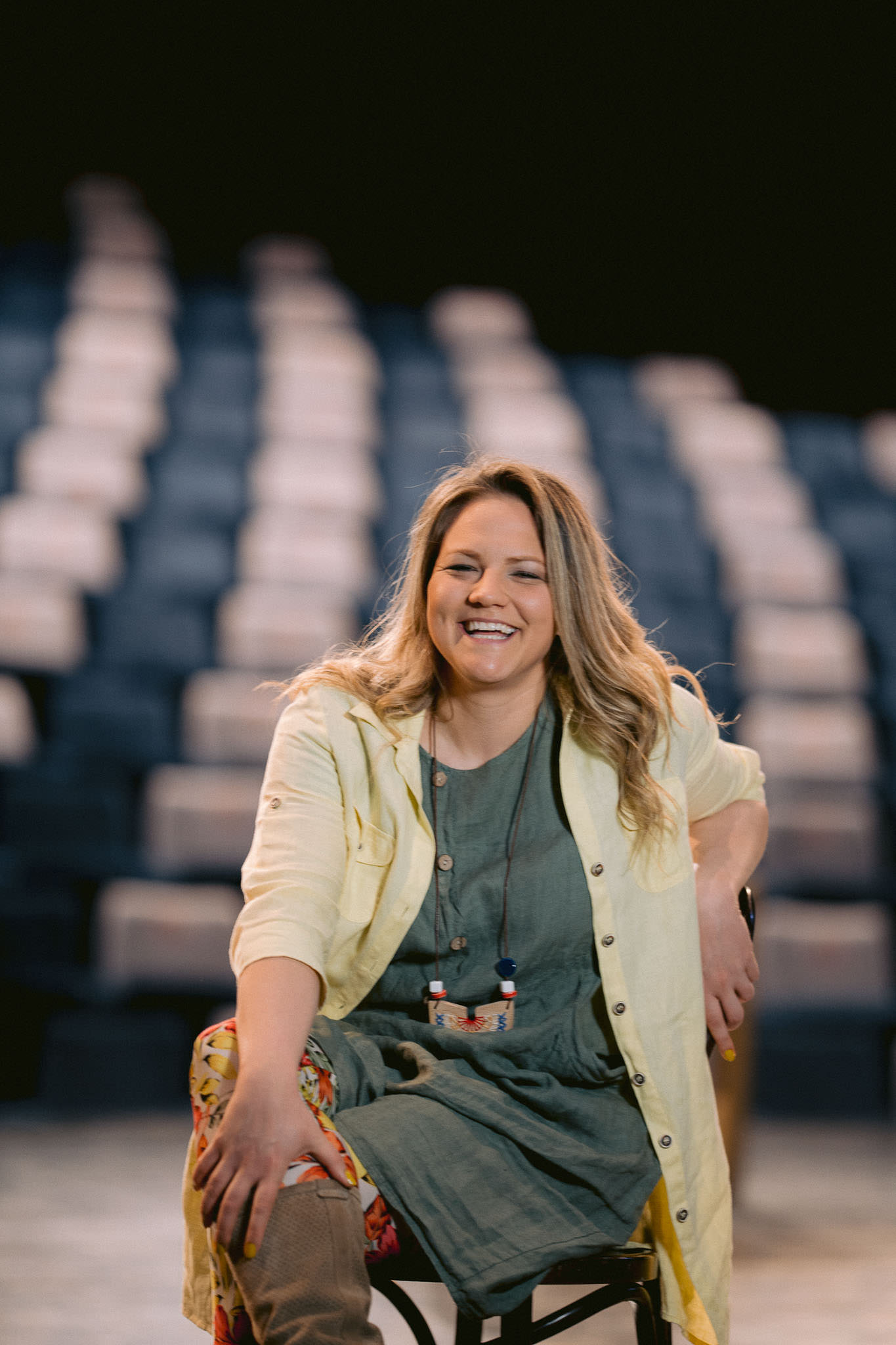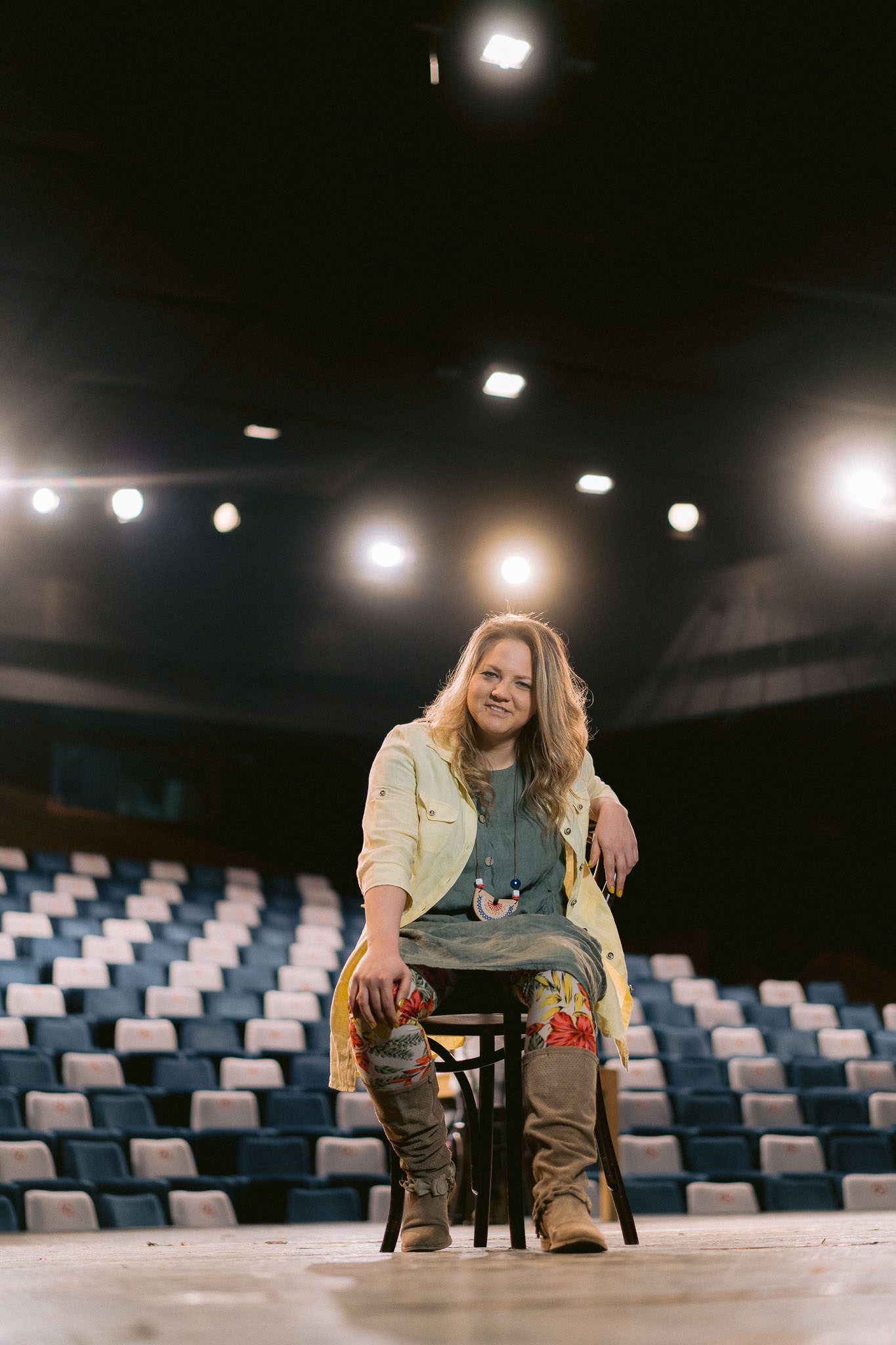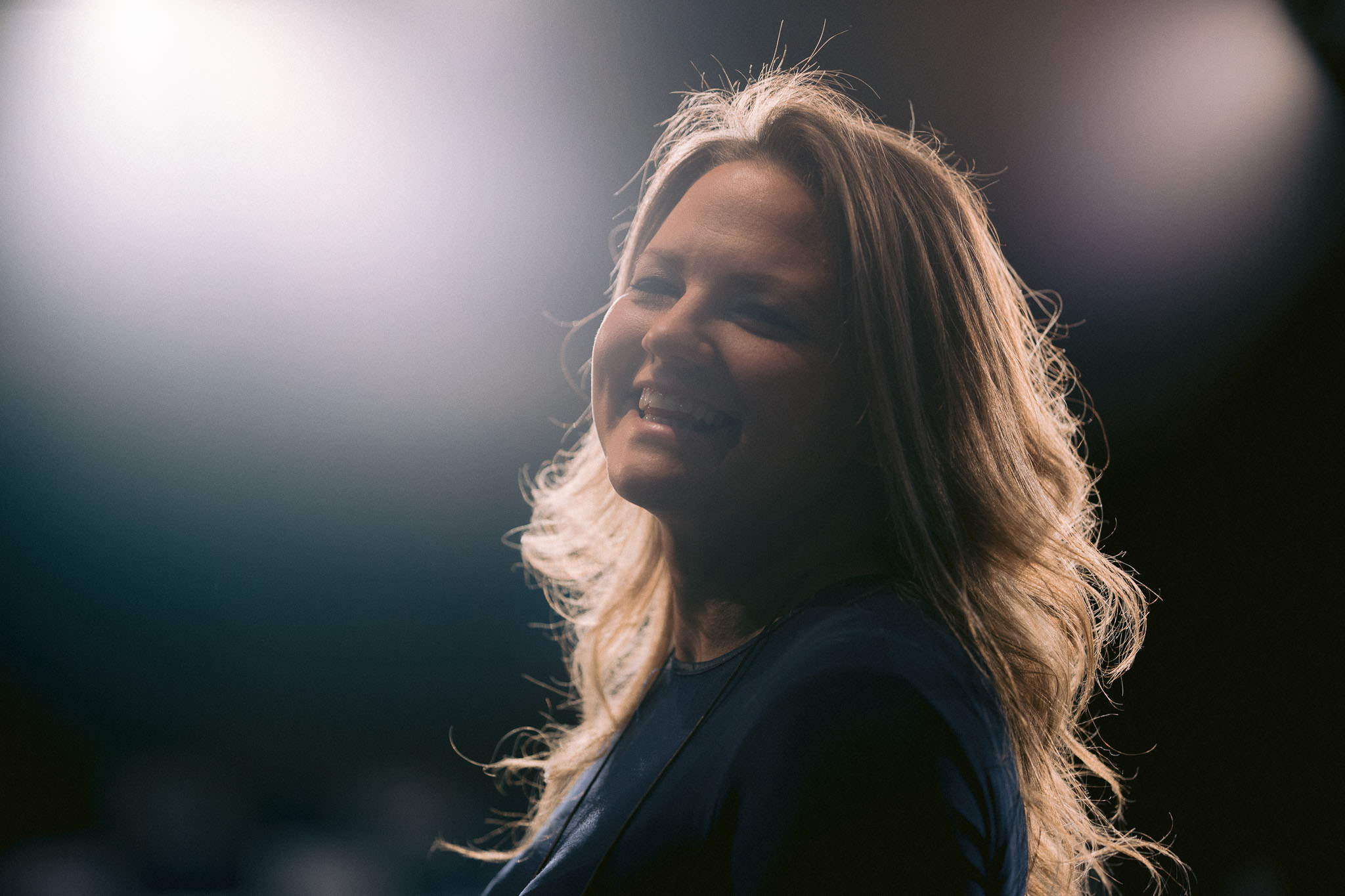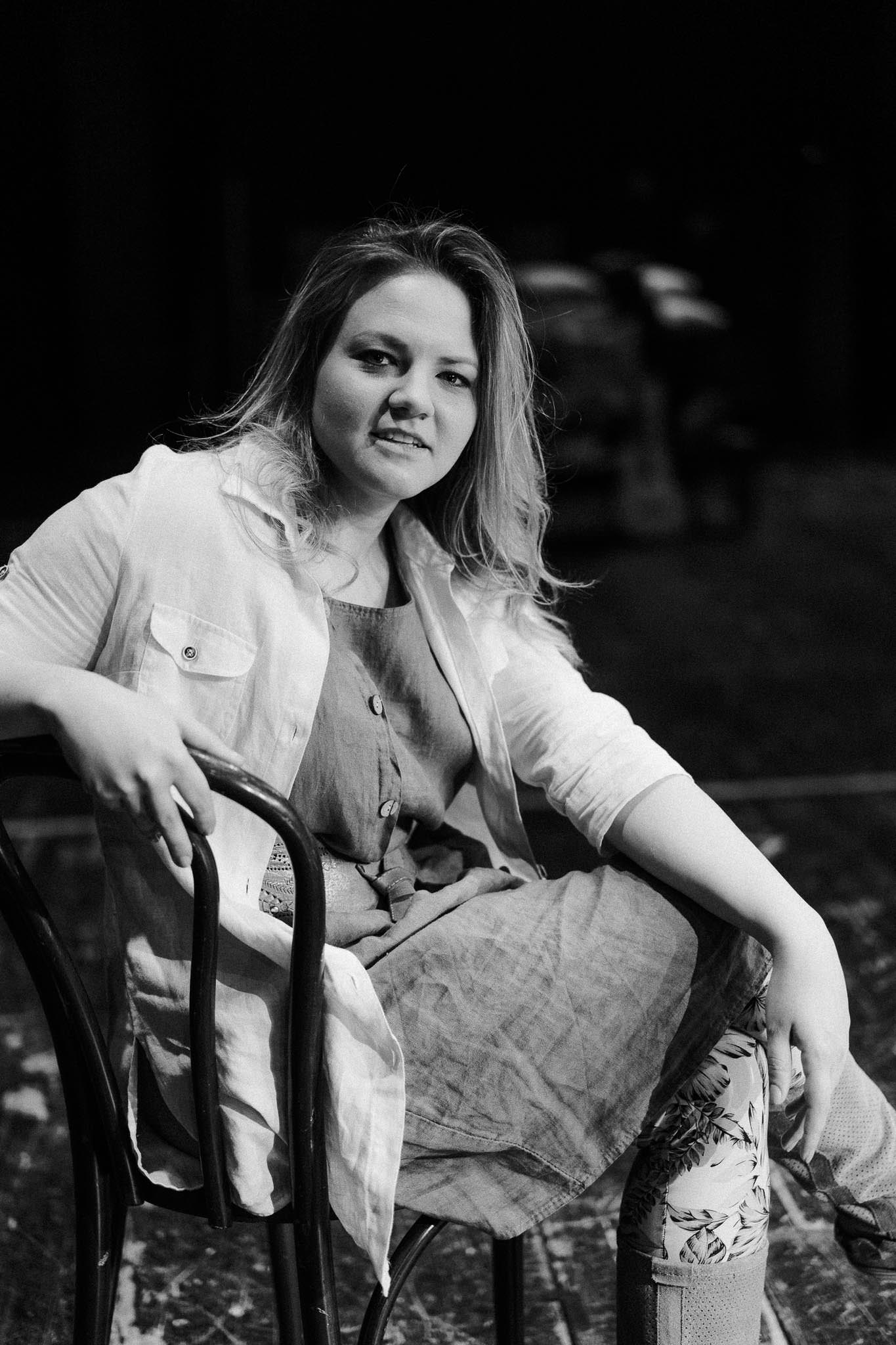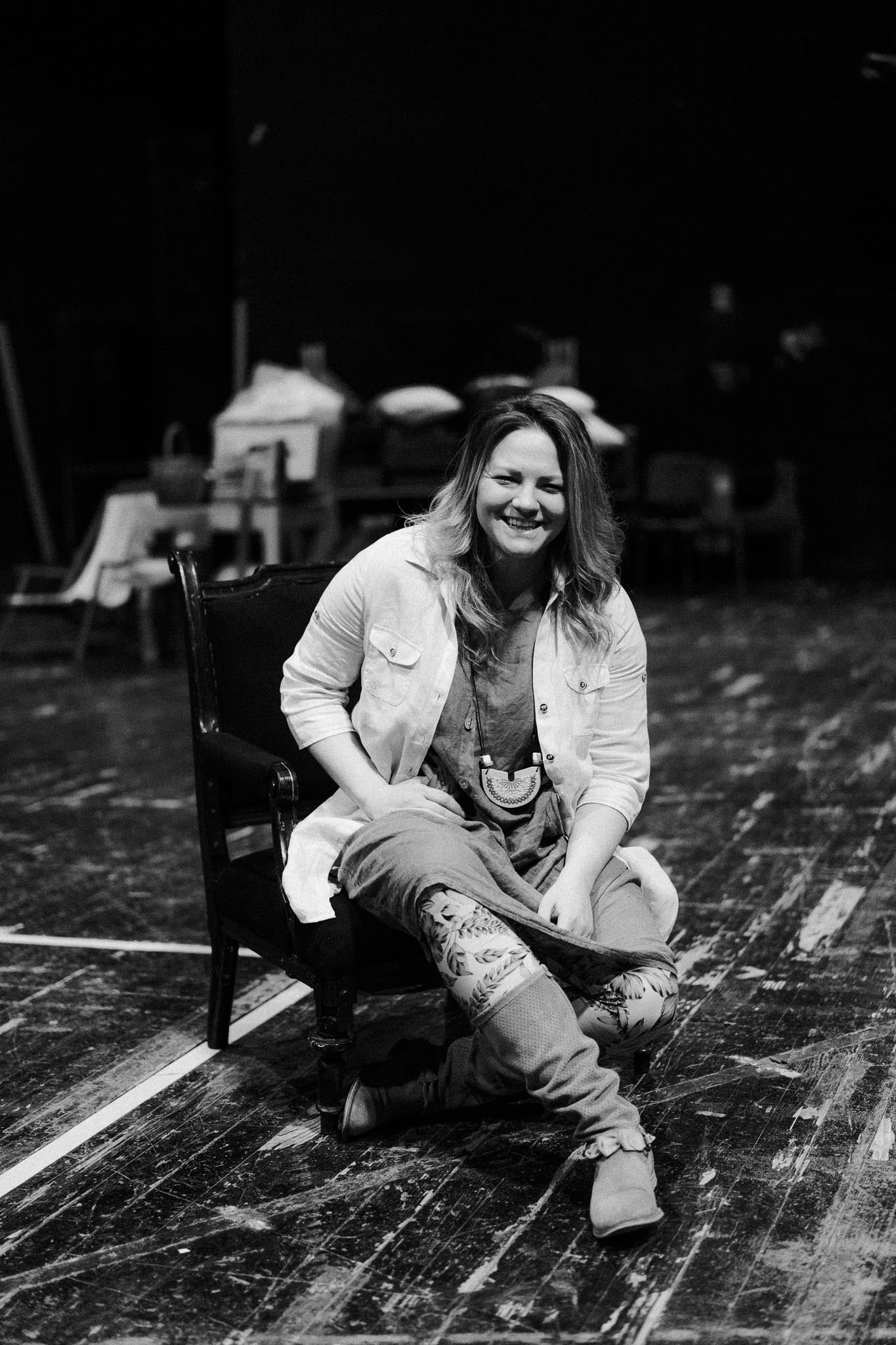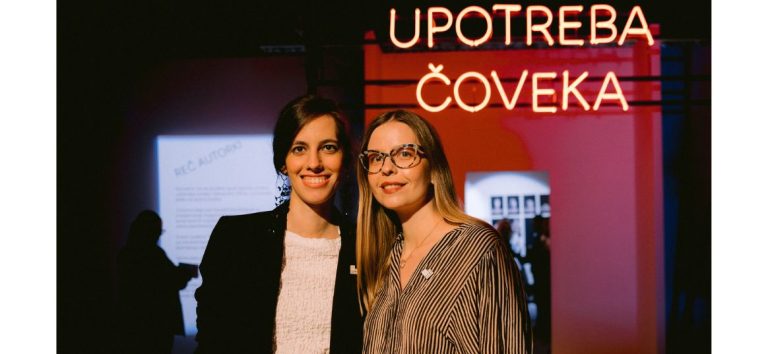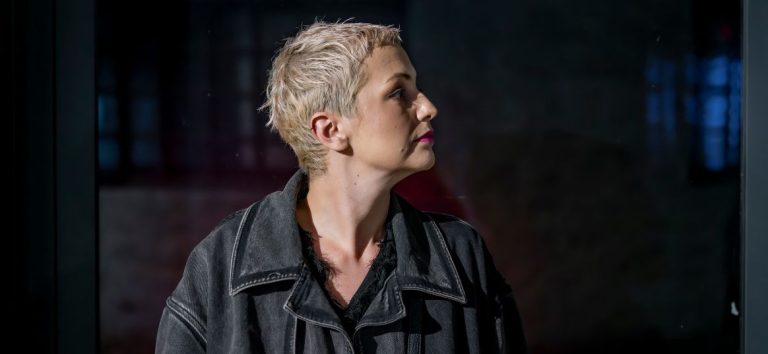Young, brave and free – that’s the first thing we’re going to say about Sonja Petrović, a director who won over the Novi Sad audience with her play Who Killed Janis Joplin?. When the play was first staged in the Serbian National Theatre, the director attracted the attention of theatre lovers, and so she began to receive numerous awards. Among them, there’s the Annual Award of the Serbian National Theatre that Sonja deservedly won this year with her well-planned and creative directing. Portraying the American rock and blues icon of the 20th century was also her way of expressing respect for Janis since, as Sonja says, without Janis Joplin her personality wouldn’t be the same.
Sonja Petrović graduated from the Academy of Arts in Novi Sad and then finished her master thesis at the Faculty of Dramatic Arts in Belgrade, after which she came back to Novi Sad and to the Academy as a PhD student. Her plays have been staged abroad too, where she’s received numerous awards, among which is the Laureate Award of the ‘ArtOkraina’ festival in Saint Petersburg. She directed a couple of radio-dramas and is the director of the ‘Festival of Ecological Theater for Children and Youth’ in Bačka Palanka, for which she won the October Award. Sonja is also one of the founders of the regional platform for development and affirmation of theatre for children and youth – ‘Od malih nogu’. Currently, she’s working on a new play called The Little Match Girl in the Youth Theatre, based on the motifs of Hans Christian Andersen’s literary fairy tale.
It seems that Novi Sad ‘stood up’ after the premiere of the Who Killed Janis Joplin? play. The awards that the play received are an obvious indicator of how good it was. Both you and actresses Bojana Milanović and Sonja Isailović won the Annual Awards of the Serbian National Theatre. How do you feel about this award?
– I’d be lying if I said getting an award doesn’t feel good. Getting acknowledgement from an institution such as the Serbian National Theatre is important. I respect both the award and the institution. I believe every award has a certain meaning, depending on when in life you receive it. Personally, this award encourages me to keep doing my job with the same enthusiasm and passion. Practically speaking, it’s quite important to have written proof and arguments when you first start doing this kind of job, as it can help you and open doors to other things as well. I feel the responsibility to keep creating within the unpretentious yet high standards that we set for ourselves.
It’s difficult when you’re different, both nowadays and when Janis Joplin lived. It’s not easy changing someone’s mindset. Do you think the play was so well received because the generations of ‘different people’ can identify with Janis?
– When I said I was considering doing a play on Janis Joplin, everyone was quite sceptical. They asked why would we, as newer generations, deal with someone who passed away fifty years ago. However, young people did identify with Janis and they noticed that we still haven’t overcome certain things. I noticed that our people are listening to Janis more these days, I don’t know, maybe I’m being too personal and subjective, but I’m happy about it all the same. Maybe this play brought her back to life in a way.
Do you see Janis as a victim or a winner of her time?
– Janis Joplin died 50 years ago, but those who are different still face some kind of discrimination, unfortunately. Honestly, I think Janis Joplin was both a victim and a winner of her time. Looking at it from this perspective, she’s a winner because many girls found their own freedom thanks to Janis Joplin and all the things she did, no matter how small or unimportant she deemed them at the time. And fifty years later, Janis’ deeds allow us, women, to be who we are today.
In previous interviews, you mentioned that, before the idea of working on a play even started to develop, you thought a lot about how to stage the play, and then you split Janis into two characters. Bojana and Sonja are completely different, yet so in sync with one another acting-wise. They portrayed Janis as she was. Why split her into two characters?
– Whenever I thought of Janis Joplin as a phenomenon, I always thought of the two extremes she carried within herself, and they were such a mismatch to me. Fundamentally, we all have them, but they were so emphasised in Janis due to the defence mechanisms she used in order to cope with the world and survive in it the way that she was. I couldn’t think of one person representing these two extremes at the same time. On the one hand, we have a brave and rough woman, ready to change the world, bring about the changes and be a leader, while on the other hand, we have a very vulnerable and sensitive soul that really only wants shelter, love and support. I believe that Bojana and Sonja, each in their own way, show the accurate image of who Janis Joplin was by combining their energies and passions.
The play was made in coproduction with the Serbian National Theatre and the European Youth Capital Novi Sad 2019 – OPENS. How important is the support that young artists get from the institutions?
– People from OPENS were the first ones to open their door to me when it comes to finding producers and people who will place this play where it belongs. I think it turned out to be the right path since the topic concerns mainly young people, and the OPENS recognised the idea behind the whole project. The success of the play actually proves how important institutional support is. It’s necessary. For us, it’s the basis for creating something. It’s also quite important that the Serbian National Theatre cooperated with OPENS, which is represented by young people that might not have had enough experience with the theatre but that took the risk anyway. It’s precisely this risk that reflects the youth. By coproducing and participating in the play, I believe the Serbian National Theatre showed its readiness to understand young people as well as its own young spirit, despite the fact that it has existed for many many years.
What do you think of Novi Sad?
– Novi Sad is my own personal space of freedom. I come from a smaller city in which I couldn’t feel as free as I feel here.
Novi Sad got the European Capital of Culture title in 2016. The next year will be crucial when it comes to the project of national importance. What does this title mean to you?
– To me, the European Capital of Culture title is a kind of brand, an official confirmation of what we have already had and nurtured for many years. I believe it’s a window to the world and a chance for all cultural gems that we have to be seen. It’s an opportunity to bring the world to us.
Interviewer: Gala Gajin
Photo: Vladimir Veličković

